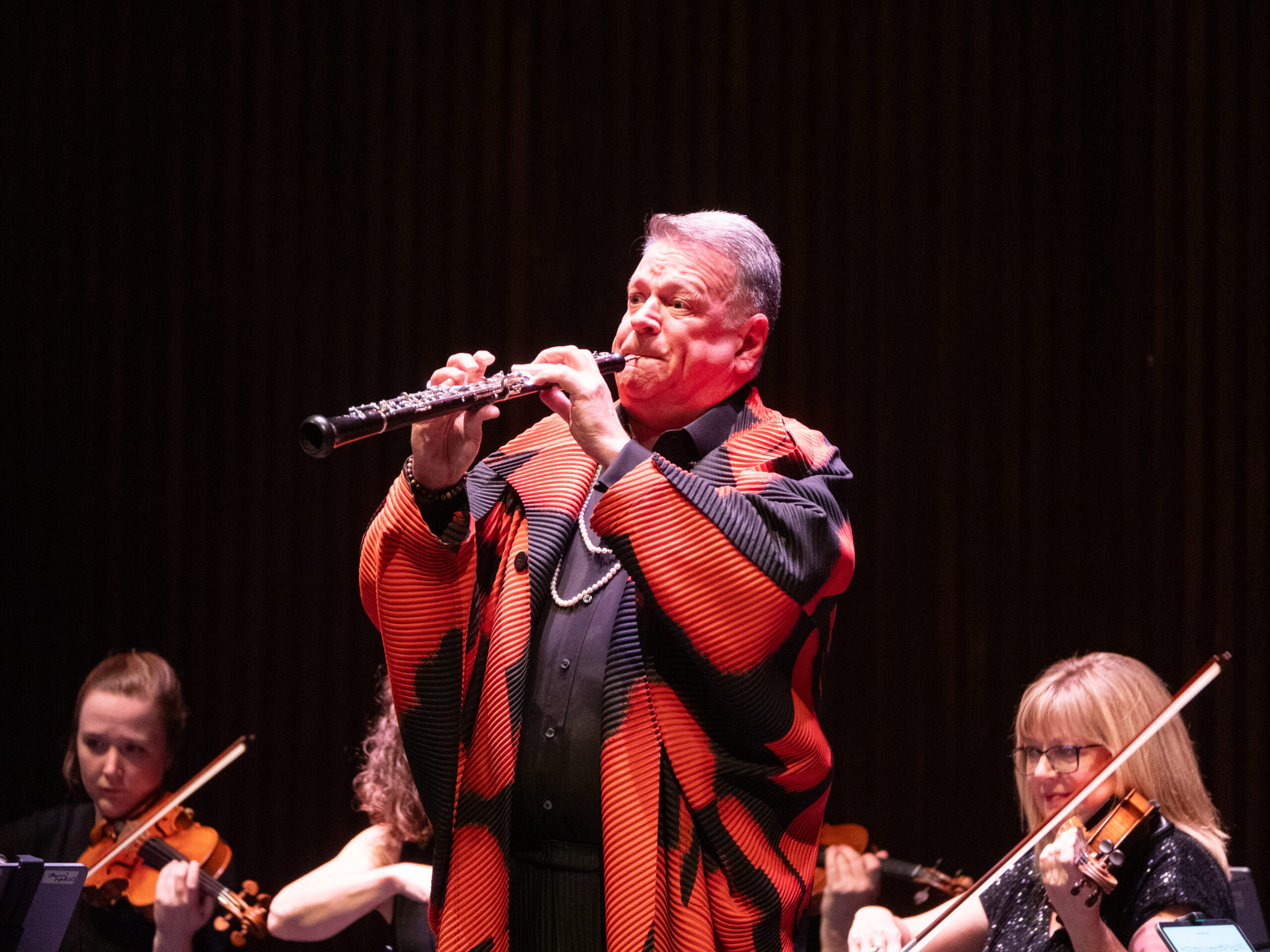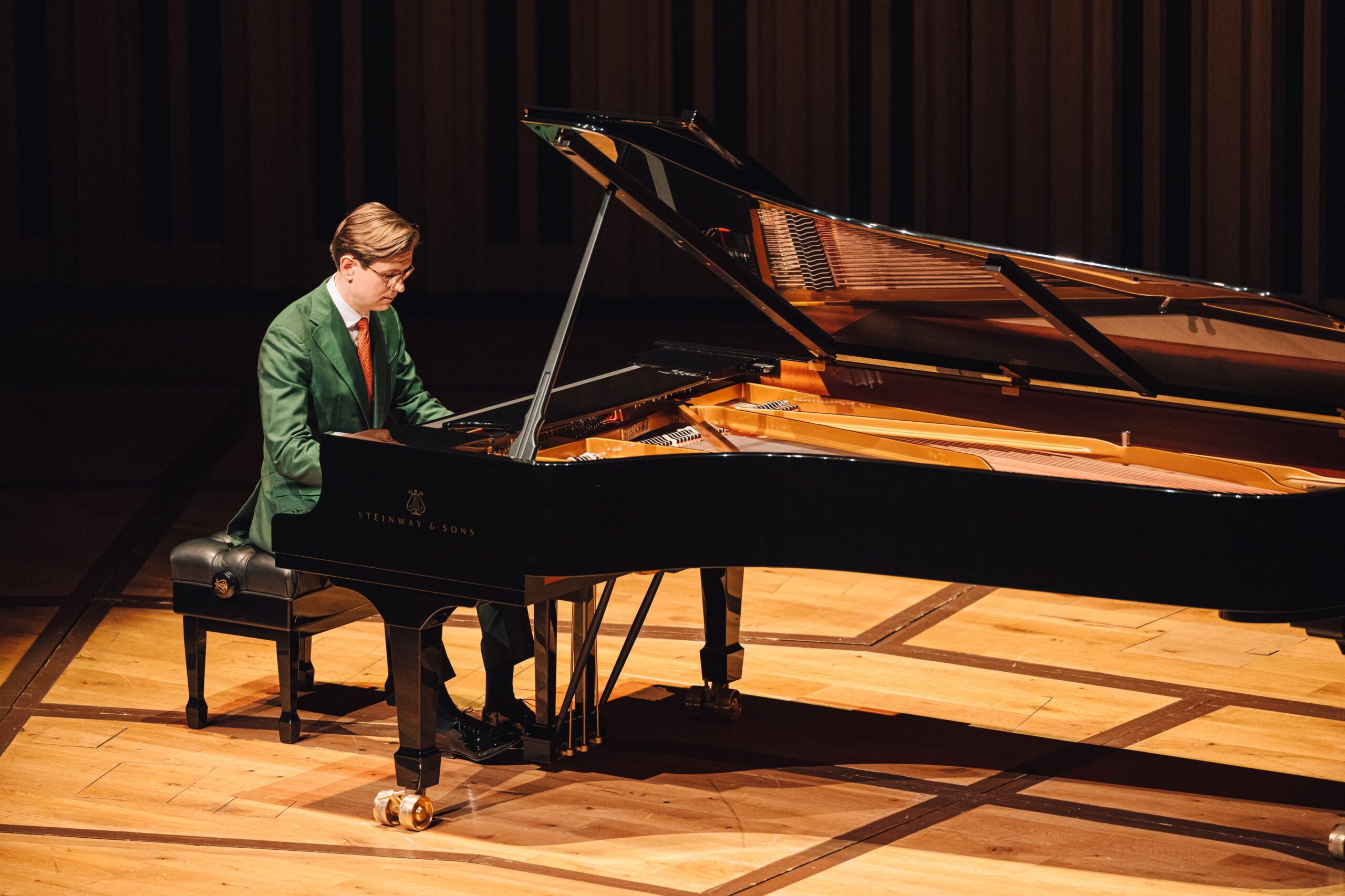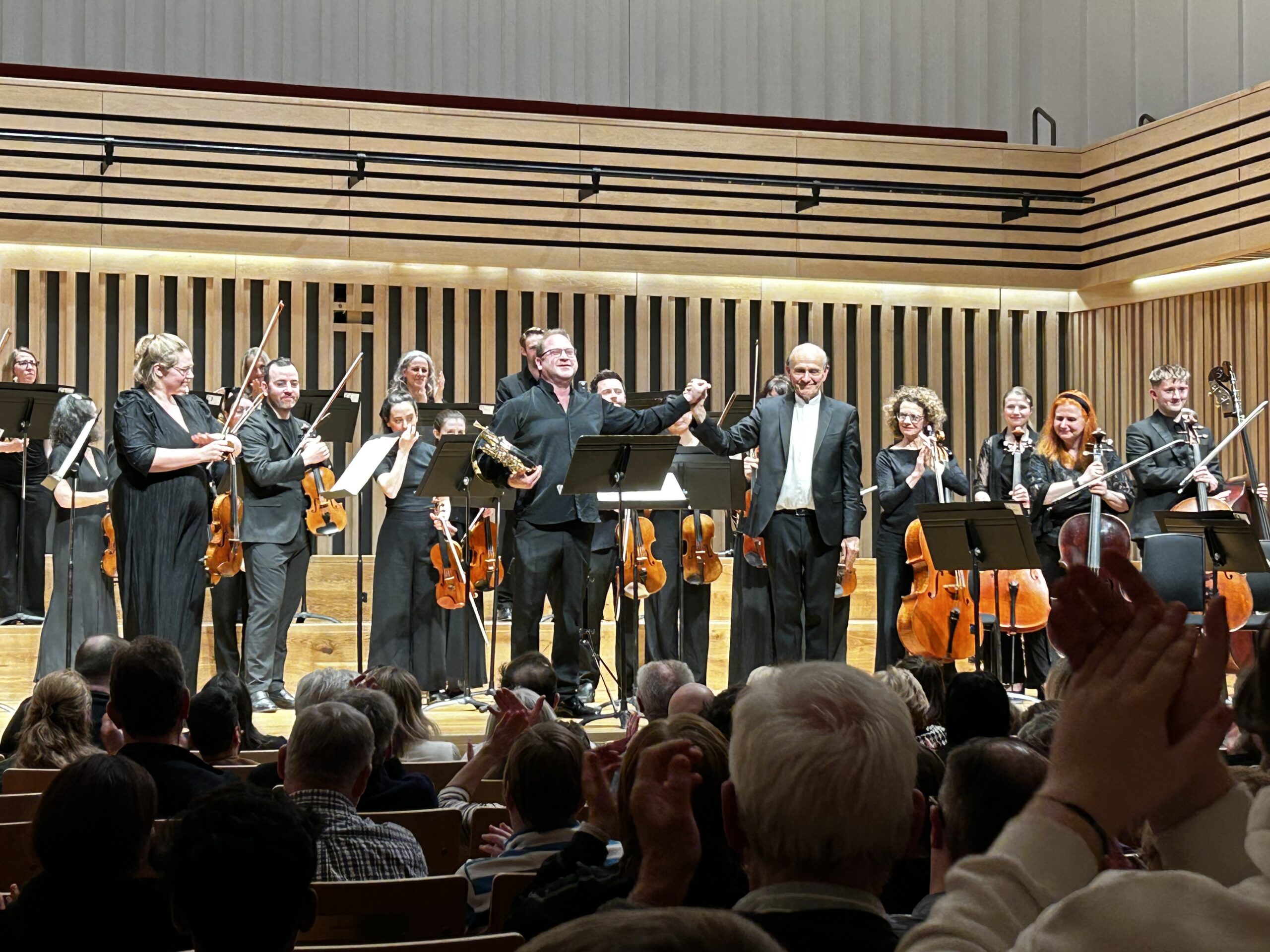“Festivals are not always attractive,” wrote EM Forster looking back on the first Aldeburgh Festival in 1949. “Sometimes they are just an excuse for overcharging.”
Had Forster been staying in Aldeburgh for this year’s Festival he may have taken umbrage with some of the accommodation charges or balked at a High Street café charging a bewildering £9.50 for a jacket potato and a topping.
No matter. Seventy-four years after EM Forster talked in the Baptist Chapel on Aldeburgh High Street, he’d have been pleased to see what he wrote then still holds true now. Coming to the 75th Aldeburgh Festival this year – an annual trip that is fast becoming some of a pilgrimage for Thoroughly Good – some things appear different whilst others remain resolutely and reassuringly the same.
Lasting Legacy
My week-long trip has seen a convergence of past and present – a family of friends, present-day and former colleagues, convening to experience a special event that honours its founding principles in events on the edge of the East Suffolk coast. In its 75th iteration Aldeburgh still delivers exciting new discoveries of unfamiliar works and composers, but this year perhaps more than others were bittersweet moments of personal growth.
When Forster bemoaned the overcharging in some British festivals culture of the time he wasn’t simply documenting the ongoing impact of post-war privations, but highlighting how Aldeburgh was different, even in 1945. Three years after the premiere of Peter Grimes at Sadlers Wells – the work that establish Britten’s international reputation – barbed wire sea defences remained on Aldeburgh beach, milk was still delivered in carts, farmland had gone to seed and food and petrol was still rationed. Whilst the threat of invasion was long gone, the new peril was flooding and the poor state of the town’s sea defences. Aldeburgh wasn’t a go-to destination like it is today.
Birth of the Aldeburgh Festival

Yet, Britten and his partner Pears were resolute about the idea of a music and arts event, galvanizing the local community who would provide funding, and meet various logistical challenges like bed and breakfast accommodation for visiting artists. The then recently formed Arts Council initially stumped up £300 (£9000 in today’s money) for the 8-day festival of concerts, art exhibitions and lectures.

The first Festival would see Forster give a talk on the subject of Aldeburgh poet George Crabbe similar to the one Britten had read in The Listener that had inspired the conscientious objector not only to return home to England but to pen Peter Grimes. Along with a series of talks and exhibitions, an exhibition of the Sadler’s Wells production design was mounted in the town’s Moot Hall capitalised on the success of Britten’s first opera. The Festival 1948 opened with a concert including Purcell’s Chaconne, a Handel Organ Concerto, and the premiere of a new work by Britten, the cantata Saint Nicolas.
Recreating the first concert

This opening concert was ‘recreated’ at Snape Maltings Concert Hall this, with a concerto co-commission by Robin Haigh performed by trumpeter Matilde Lloyd. The concert programme reflected Britten’s influences, illustrating how the Festival has continued to champion the new whilst celebrating the past. Robin Haigh’s entertaining work Luck – described in the programme notes as ‘being like a Netflix-drama version of classical music—grand but squeezed into a pop music sensibility’ bristled with detail, colour and verve, itself an illustration of compositional choices has evolved to meet audience needs and expectations.
The 75th Festival also celebrated a significant moment in the life of its founder, highlighting the important friendship between Britten and Russian cellist Mtislav Rostropovich. The pair met at a concert in the Royal Festival Hall in the autumn of 1960. Nine months later Britten and Rostropovich premiered the composer’s first cello sonata, inspired by and dedicated to the cellist.
The 1961 premiere was staged at Aldeburgh’s Jubilee Hall, a multi-purpose performance space situated in the heart of the Aldeburgh that accommodates around 250 audience members and exudes a robust sense of Victorian seaside charm. In comparison, Snape Maltings Concert Hall where the 75th-anniversary concert took place, housed an audience nearly four times bigger, demanding a considerably robust sound to fill the space. Pianist Steven Osborne and cellist Alban Gerhardt easily met the demands of the hall, the cellist’s mischievous wit in particular driving proceedings on and making the surprise appearance of Ian Bostridge for a repeat of the 1961 encore of Bach all the more gratifying.
Rewarding curious audiences

Where other festivals might be seen to be lacking ambition in their programming, Aldeburgh remains steadfast in maintaining the values established by Britten and securing near-capacity audiences accordingly. By doing so it’s not so much risking the house with lesser-known of works, as rewarding a curious audience with an appetite for discovery with a seemingly never-ending menu of new and exciting works. This year’s week-long Thoroughly Good visit has seen several unexpected and pleasing introductions, themselves the result of artists bringing their own passions to the Festival.

Baritone Jonathan Eyers brought unfamiliar songs from fellow New Zealander Douglas Lilburn full of wistful nostalgia for the homeland, and Gareth Farr’s witty poke at the ‘humble’ Kiwi from the composer’s ‘Ornithological Anecdotes’. Gweneth Ann-Rand’s powerful performance of Messiaen’s epic Harawi song cycle will surely go down as a highlight of the year. The revelatory performance of Judith Weir’s ‘blue hills beyond blue hills’ from the BBC Singers and Castalian String Quartet is noteworthy too. Similarly, Vaughan Williams’s heartfelt Oboe Concerto performed by Aldeburgh regular Nicholas Daniel and Britten Sinfonia. Britten was never especially enamoured by Vaughan Williams’s contribution to English music. What would he have made of hearing the passionate rhapsodic lyricism in RVW’s score? I’d like to think he would have reappraised his view.
Encounters and reflections
Ever reliable, the pull of Aldeburgh has seen the past converge with the present beyond simply the music programmed in concerts. In one weekend, four CEOs spanning forty years of the Festival’s history – Sheila Colvin, Jonathan Reekie, outgoing Roger Wright and incoming Andrew Comden all attended concerts, maybe even all at the same time. Colvin transitioned the organisation from its Aldeburgh base to Snape. Reekie expanded the organisation to multiple buildings and activities. Wright brought the disparate elements together into a unified whole – artistic, legacy, and business. What will Comden do next? And what does a former CEO ponder about their successor, and how does that impact how they reflect on their own tenure?
Sheila Colvin, a key figure in my time at the Festival, always struck me as a bit of a trailblazer. Her no-nonsense spirit was a strong motivating force, and her vulnerability offered much-appreciated support when needed. Nearly thirty years later, I encountered her late last week by chance me walking back from the shops, her arriving in a taxi. She appeared strong, determined, and resolutely self-deprecating: “I’m decrepit!” she declared as I helped her out of the car. “I don’t believe a word of it,” I replied.
Embrace change and practice gratitude

Change happens and sometimes it’s necessary to let go. Looking out from my rented cottage, I see the iconic Ocean House B&B being renovated. Its former owner, integral to the Festival’s hospitality for visiting artists, has moved on, a reminder that just as things change, so things like festivals have to change, and festival goers have to accept that change.
Gratitude sweetens the pill, however. I’ve written before about the role outgoing CEO Roger Wright played in the development of Thoroughly Good, something which perhaps only really came into focus as a result of his recently announced departure and knighthood. Sad as this is however, I’m also aware that my annual pilgrimage to Aldeburgh in recent years has stretched me in both my musical appreciation and understanding, something which the founders of the Festival would I hope be pleased about. These experiences have developed me as a content creator and writer too. That’s quite the long lasting and ongoing impact for a niche music festival in its 75th iteration.

If Aldeburgh’s 75th has seen me confront unexpected feelings of imposter syndrome (I think we all experience it at various points), it’s also reminded me that creativity is an ongoing process of development. We don’t create to be perfect, but create to improve. Such reframing, set against the soundtrack of this year’s festivals sees me leave the town recharged and revitalised.
Yet, the lasting memory is the bittersweet experience of feeling both at home here in Aldeburgh and sad having to acknowledge ever-increasing fraility and departure of those who have helped shape vital musical experiences. I look forward to the next opportunity to head up to Suffolk and feel the crunch of the beach underfoot, regardless of the cost of a jacket potato.



